The Fraud Challenge

Overview
The Fraud Challenge
Understanding Anomalies and Actions
The Growing Fraud Issue
Fraud accounts for about 5% of loss in many organizations. Understanding who does it, why they do it, what it is they do and how they do it is key to mounting an appropriate response and protective shield for your organization. Organizations need a fraud management plan to detect, identify and remediate any fraud threat that presents itself. The risk of loss be it intellectual property, money, or other assets requires a management approach that balances risk loss with likelihood and impact of fraud.
What should you know About fraud?
Responding to the fraud challenge depends on how well an organization does its fraud management. Fraud management is about preparing a cohesive approach to the types of fraud that threaten an organization. Fraud today is more than attempts to damage an organization. Fraud is also extending to personal computers because of the large numbers of remote workers that are now active and connected to the organizations they work for. There are several different types of fraud. The different types of fraud tend to dominate certain types of organization.
What can you do about it?
Learn about the well-known methods and tools that deal with fraud and its related risk. Answer key questions such as:
- What is the difference been theft and fraud?
- When does theft become fraud?
- What is compliance fraud?
- Is intellectual property theft also fraud?
- Does personal laptop hacking threaten your organization?
- How can you detect anomalies that point to fraud?
These and other questions are answered in this course. A knowledge of the fraud cycle assures that good value is achieved from the fraud management efforts.
Benefits of attending
Expected Learning Outcomes
- Describe key fraud techniques used today.
- Explain why risk is related to fraud.
- Identify the risks related to fraud.
- Describe how to create a risk register.
- Understand the assessment of risk
- Describe how to respond to risk
- Describe the use of data analytic techniques
- Define how threats drive fraud response
Who should attend
Who should attend
This course is key must for business managers, strategic planners, marketing analysts, planning managers, process analysts, business analysts, data analysts and business architects.
Course Outline
Day One
Theme: How do you Manage Fraud?
Responding to the fraud challenge depends on how well an organization does its fraud management. Fraud management is about preparing a cohesive approach to the types of fraud that threaten an organization. Fraud today is more than attempts to damage or removal of assets from an organization. Fraud is also extending to personal computers because of the large numbers of remote workers that are now active and connected to the organizations they work for.
Session 1 – Fraud Management
Section 1.1: The Stages of Fraud Management
- What does it take to manage fraud?
- Anticipation – Where will fraud occur?
- Identification – Anomaly detection
- Validation – Is it really fraud?
- Neutralization – How do you counter fraud?
- Video Discussion – Why Worry About Fraud
Section 1.2: Fraud Anticipation- Types of Fraud
- The scenario approach
- Internal fraud
- Illegal acts, theft, embezzlement, financial fraud
- External fraud
- Customer, Supplier, Branch, Distributor, Third party
- Transaction fraud, cyber fraud, and hacking
- Compliance
- Governance, Risk and Regulation
- Personal fraud
- Remote Work, Local Data, Linked Organization Indirect Access
- Video Discussion – Looking for Fraud
Section 1.3: Fraud Anticipation – The Risk Assessment
- A key starting point – Identifying fraud risk
- Building a risk register
- Quantifying the risk
- Risk analytics
- What does it take to manage risk?
- Demo Example – Ranking Risk
Day Two
The idea of detecting fraud is based on analyzing patterns related to money, quantities and language which is the semantic approach to anomaly detection. The simple approach is to look for exceptions but the people committing fraud are smart and adaptive and will probe your organization looking for ‘soft spots’ or weaknesses to initiate fraud. Some anomalies are normal, and some may be fraud. Differentiating them is a key to successful fraud management.
Session 2 – Identifying Fraud – Anomaly Detection
Section 2.1: Detecting Fraud through patterns
- The scenario approach to patterns
- Patterns in Data/Documents
- Controls and Behavior
- Critical time frames for response
- Operating unit response versus integrated response
- Video Discussion – Analyzing Patterns in Fraud
Section 2.2: Anomaly Detection with Data Patterns
- Anomaly detection
- An anomaly detection example
- The transaction funnel idea
- Data analysis for fraud
- Identifying false positives and exceptions
- Hacking and external penetration
- Exercise and Discussion – Looking for Fraud in Transactions
Section 2.3: Semantic Anomaly Detection
- When do you use linguistic anomaly detection?
- Contract and agreements
- Strategic plans
- Names and text entries
- Linguistic (semantic) Analytics
- Keyword, semantic comparisons. Phrase and text field analysis
- Demo Discussion – Finding Hidden Risk with Semantic Analytics
Day Three
Theme: Validation – Is it Really Fraud?
The goal of fraud is to conceal the truth, the goal of fraud validation is to identify the truth, expose and report the fraud. So, there is a need to provide a validation approach that sorts the ‘red flags’ into real attempts of fraud and false positives. There are several algorithms to sort potential fraud action. Often, a combination of algorithms is needed. This needs to be done across internal organization.
Session 3 – Validating if it is Fraud
Section 3.1: Sorting Through Red Flags
- Data – Confirming Transactions
- Documents – Checking Fields for Validity
- Critical time frames for response
- Operating unit versus integrated view
- Exercise and Discussion – Identifying ‘Red Flags’
Section 3.2: Theft versus Fraud
- The theft/fraud overlap
- Uncovering concealment
- Controls and Behavior – Policies and Procedures
- Compliance review
- Legal review – contracts, agreements, conditions, licenses
- Video Discussion – The Fraud Audit
Section 3.3: Getting the Experts Involved
- The validation register = – The list of experts
- Validation procedure
- Validating the validation – The double check
- Validation and refutation
- AI and validation
- Topic Discussion – How many experts do you need?
Day Four
Eventually you want to neutralize the fraud and put in place barriers to that type of fraud and related fraud approaches. Once blocking mechanisms and remedial actions by management are installed you can audit to see if these procedures are being followed. Further, you want to add better, more automated, and more rapid detection methods. Periodic or event-based review and update of the fraud management plan is needed to make this work.
Session 4 – Neutralizing Fraud -Prescriptive Actions
Section 4.1: Fraud Management Planning
- The fraud management plan
- The fraud connection
- People, Transactions, Organizations, Targets
- Common fraud target:
- Invoices, Purchase Orders, Payments
- Linking patterns of fraud across distributors
- The dashboard for fraud management
- Threat, response, trends
- Example Discussion – Tracing Fraud
Section 4.2: Preventing Threat Extension
- Fraud across organizations
- Organizations, partners, distributors
- Customer oriented threats
- Partner threats
- Competitive threat and intellectual property
- Espionage in business and government
- Video Discussion – The Methods of a Hacker
Section 4.3: The Proactive Approach
- Revisiting Scenarios – Anticipating new threats by Adapting
- Tightening controls – Raising fraud awareness
- Fraud recovery, assets, property, money
- Rolling plans
- The rapid response team
- Final Q&A – Open Questions About any Fraud/Theft Topic
Your trainer
Meet your expert course trainer: Frank Kowalkowski
 Frank Kowalkowski is President of Knowledge Consultants, Inc., a firm focusing on business performance, business analytics, data science, business architecture, big data, business intelligence, predictive analytics and statistical techniques. He has over 30 years of line management and consulting experience in a wide variety of industries. He has been involved with many projects both as a user and purveyor of business analytics. He has worked projects in state and federal government dealing with back office operations, legislative compliance and regulatory compliance. He has worked on the federal level with the national defense department, Coast Guard for drug interdiction and other projects. His background includes a number of industries including manufacturing, distribution, supply chain, banking, insurance, financial institutions, health care, pharmaceuticals, oil and gas and chemicals.
Frank Kowalkowski is President of Knowledge Consultants, Inc., a firm focusing on business performance, business analytics, data science, business architecture, big data, business intelligence, predictive analytics and statistical techniques. He has over 30 years of line management and consulting experience in a wide variety of industries. He has been involved with many projects both as a user and purveyor of business analytics. He has worked projects in state and federal government dealing with back office operations, legislative compliance and regulatory compliance. He has worked on the federal level with the national defense department, Coast Guard for drug interdiction and other projects. His background includes a number of industries including manufacturing, distribution, supply chain, banking, insurance, financial institutions, health care, pharmaceuticals, oil and gas and chemicals.
More recently Frank has been involved in conducting workshops, professional training sessions and assessments of architecture, data science, governance, compliance, risk and process management efforts. He also develops algorithms for analytics tools particularly semantic algorithms as well as data analysis techniques. He is often a keynote speaker, panel moderator and member at international conferences as well as a conference chair, he has written numerous papers and spoken at conferences on a variety of business subjects. He conducts frequent seminars nationally and internationally on a variety of business management, analytics and information technology topics.
He is the author of a 1996 book on Enterprise Analysis. His most recent publications are a featured chapter in the business book “Digital Transformation: Using BPM You Already Own.” for publication in 2017. His chapter is titled “Improve, Automate, Digitize”, he also has a chapter in the business architecture book titled ‘Business and Dynamic Change’ June, 2015 and a chapter on semantic process analytics in the book Passports to Success in BPM published in 2014 all are available on Amazon.
About KCI
Knowledge Consultants. Inc. (KCI)

Knowledge Consultants, Inc. is a professional services firm founded in 1984. KCI provides consulting and professional education services. With over 50 courses taught worldwide, KCI provides the opportunity to develop core strengths in the following certification areas:
- Process Management
- IT Management
- Business Performance Management
- Business Analysis
- Analytical Techniques for Business
- Business and IT Architecture
KCI has expanded its training and consulting efforts internationally into Europe, Southeast Asia and the Middle East. KCI has an outstanding list of current and past clients including many of the Fortune’s 100 companies.
Consulting focuses on the key areas of Business Performance Management, Process Management, Business and IT Architecture, Business Analysis, Using Analytic Techniques for Performance Improvement and IT Management.
Schedule and Pricing
Timings – 3 hour sessions over 4 days
- 10:00 – 13:00 UK
- 11:00 – 14:00 CET
- 14:00 – 17:00 GST
Session Timings
- 14:00
Introduction - 14:05 – 15:00
Session 1
Q&A - 15:00 – 15:10
Break - 15:00 – 15:10
Break
- 15:10 – 16:00
Session Two
Q&A - 16:00 – 16:10
Break - 16:10 – 17:00
Session Three
Q&A and Close for the day
Prices
- Early Bird PricingBook and pay before 20, May 2021$399.00excl VAT tax 5%
- Standard Pricing$499.00excl VAT tax 5%
Download Brochure and Articles
To learn more and view the course outline fill the form below to download the brochure and related articles.

